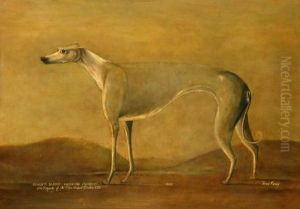Abram Darby Paintings
Abram Darby was an English Quaker, ironmaster, and inventor who played an important role in the Industrial Revolution. Born in 1678 near Dudley, in Wrens Nest, Staffordshire, England, he was the first of three generations in the Darby family who were influential in the development of the iron industry.
Darby began his career as an apprentice to a malt mill maker in Birmingham, where he gained a solid foundation in the workings of metal and industrial machinery. In 1708, he leased the Baptist Mills brass works in Bristol, where he began to experiment with new methods of producing brass and iron. He was an innovative thinker and sought to improve the efficiency of iron production, which at the time relied heavily on the use of charcoal to smelt iron ore.
In 1709, Abram Darby made a significant breakthrough when he successfully smelted iron ore with coke rather than charcoal at his blast furnace in Coalbrookdale, Shropshire. This innovation was critical as it allowed for larger scale iron production due to coke's abundance compared to the increasingly scarce and expensive charcoal. His method also reduced the deforestation that was a significant environmental issue at the time.
Darby's innovation laid the groundwork for the later developments in the iron industry, especially in the production of cast iron. His methods were improved upon by his son, Abram Darby II, and grandson, Abram Darby III, who both continued to expand the family's ironworks and contributed to major projects such as the construction of the Iron Bridge in 1779, the first arch bridge in the world to be made of cast iron.
Darby was also known for his commitment to his Quaker beliefs, which influenced his business ethics and his relationships with his workers. He treated his employees with respect and provided them with decent living conditions, which was not common practice for the time.
Abram Darby died in 1717 at the age of 39. His contributions to the iron industry, however, had a lasting impact on manufacturing and paved the way for future advancements during the Industrial Revolution. The Darby family continued to be a driving force in the iron industry for several generations, and the legacy of Abram Darby's innovations can still be seen today.
